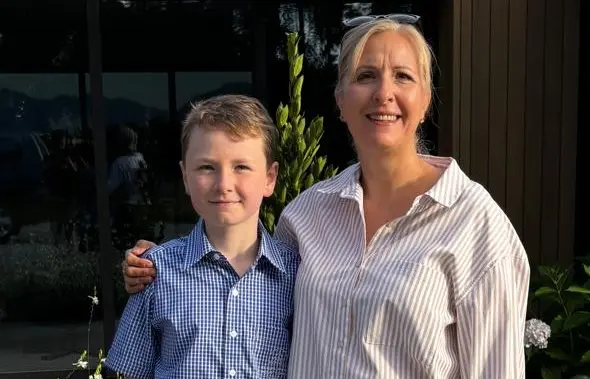Angus and Fiona's story
Angus and Fiona give an encouraging, yet honest, update two years down the track from Angus' stroke.

You may remember the story of young Angus from Wānaka, who, two years ago, experienced a stroke. The stroke followed a motorbike accident while he was out riding with a friend. A neck injury from the crash is believed to have damaged his carotid artery, triggering clotting that ultimately caused the stroke. At just ten years old at the time, it is thought Angus is the youngest stroke survivor ever cared for at Christchurch Hospital however it’s not unusual for stroke to occur in babies and children. Because Angus's stroke was caused by an accident, he is entitled to receive support from ACC. Not all stroke survivors are able to receive this much-needed help.
Today, while Angus is “back on his bike” in spirit, he hasn’t returned to motorbiking. Though he continues to make impressive gains with his recovery, some challenges remain. Even so, Angus does his best to live life as fully as he can. When asked how close he feels to “firing on all cylinders,” he estimates he’s running at about sixty percent.
The encouraging news is that he’s back at school full-time. Angus receives support from a tutor twice a week during school hours, partly funded by ACC, along with a teacher aide fully funded by ACC to help him stay focused and keep pace with the demands of school life.
His right hand remains weak. However, with the aid of Botox injections to improve suppleness and a more comfortable leg brace, the twelve-year-old continues to go from strength to strength. Although he’s been cleared to return to rugby, Angus has taken up swimming for now. Freestyle and backstroke are his favourites. With the support of a specialist swimming coach, he’s slowly reclaiming some of what stroke took away from him.
For his mum, Fiona, the emotional journey is difficult to quantify.
She says one of the hardest things is seeing her son sad. But even amid those moments, Fiona sees bright signs of progress.
“Angus’ fitness, especially in the last four months, has improved considerably,” she says, “Last summer he struggled to play touch rugby, and this year he’s managing to play. Last year, if he did play a game, he’d be laid up in bed for a couple of days afterwards. The aftereffects aren’t as bad now.”
She’s encouraged that he’s moving past the phase of “not doing anything at all.” His own advice to other young stroke survivors echoes her mindset, “Do something!”
Just months ago, swimming a single pool length was a major challenge for Angus. Now he finds it easy and hopes to enter a Swimming New Zealand tournament soon. Fiona describes his growing willingness to try new activities: “Angus didn’t really want to try new things because he just wanted to do what he used to do, and he couldn’t do it. It’s taken a wee while, but he’s now open to trying new things.”
As Angus’ biggest supporters, Fiona says she and her husband have learnt to accept that things have changed.
Angus’ can-do attitude continues to shine through. As a thank-you to the rescue helicopter crew who airlifted him to hospital, Angus and his family cultivated a field of sunflowers and sold them, raising $11,000 to support the chopper’s life-saving work.
The family still feels isolated at times. Few children Angus’ age experience strokes, and specialist paediatric support is not available at the drop of a hat. Although they have received help from a Stroke Aotearoa Community Stroke Navigator, they often experience delays in getting funding approvals from ACC.
Fiona still hopes to form a nationwide support group for families of young stroke survivors and would love to connect with others. While she is in touch with another family from Tauranga, who are part of an international social media group for parents of children who’ve had strokes, there is no local equivalent, and treatment approaches differ widely overseas.
As a working mum whose son is only at the beginning of his life, she says their needs don’t quite match those of most adult stroke survivors.
“I’m keen to find mutual support,” she explains. “Because Angus feels quite alone, and feels people don’t understand, it would be good for him to meet Kiwi children in the same situation. I’m sure many of the feelings he has are similar to those other children are going through. As a parent, you can empathise, but you can’t ever fully know.”
For now, Angus says his parents are his “rock.”
More than anything, Fiona and her husband wish for their son’s future independence and are grateful to see him enjoying getting “back on his bike,” even if it’s in a new way.
If you’d like to connect with Fiona and Angus, please send us an email at news@stroke.org.nz. And if you are a young stroke survivor or their carer, please show your support by participating in our photo montage.